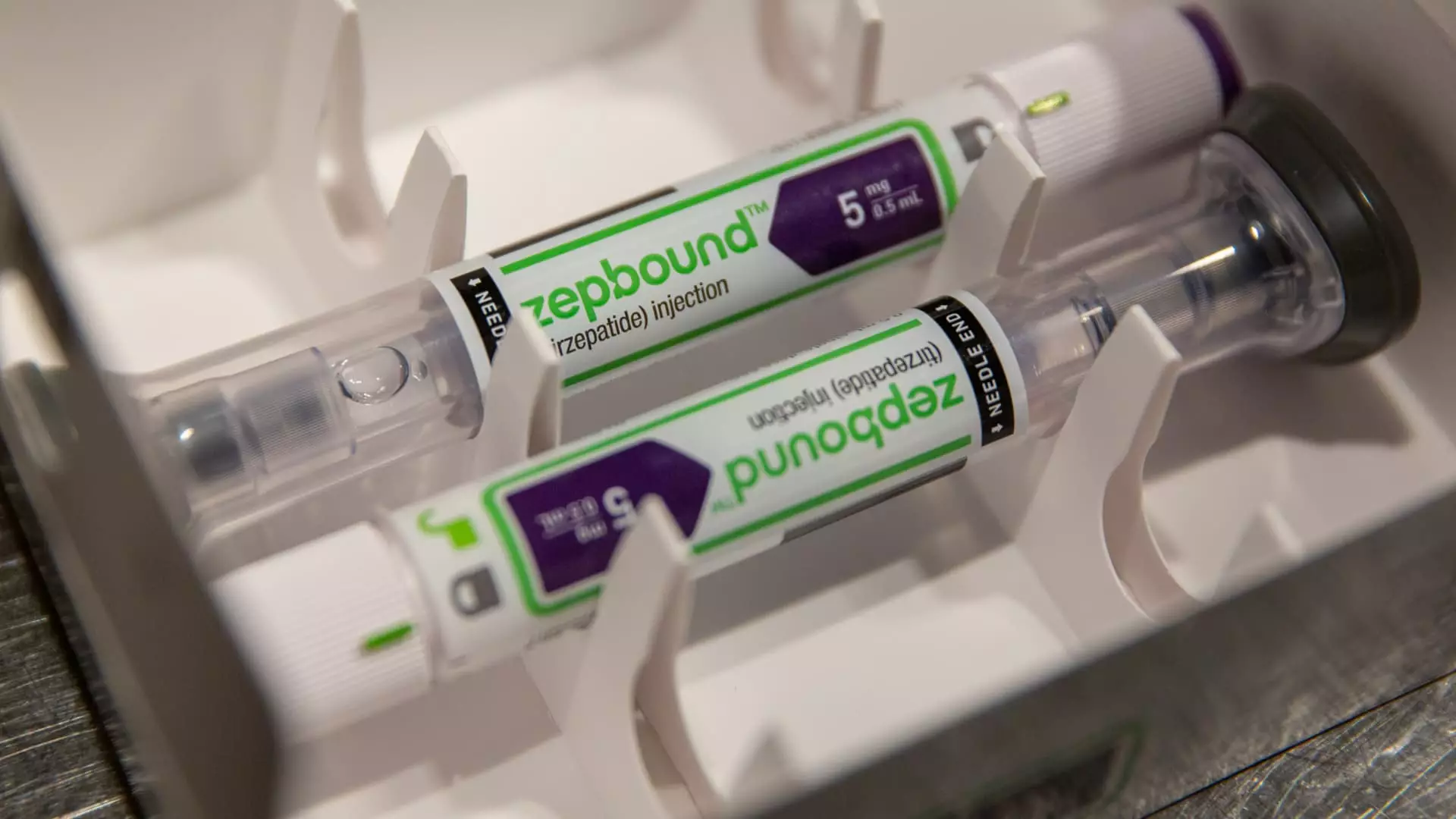Eli Lilly’s weight loss drug Zepbound has shown promising results in patients with a common type of heart failure and obesity, based on late-stage trial data released by the company. The findings suggest that Zepbound, along with other popular GLP-1 drugs, may have health benefits beyond weight loss and blood sugar regulation. This could potentially lead to broader insurance coverage for these treatments.
Patients who took Zepbound in the trial were 38% less likely to be hospitalized or die due to heart complications compared to those who received a placebo. They were also less likely to need to increase their heart failure medication. Zepbound significantly improved heart failure symptoms and physical limitations, providing hope for patients with heart failure with preserved ejection fraction (HFpEF) and obesity.
HFpEF refers to a condition where the heart is unable to pump enough blood to meet the body’s needs. It is associated with a high burden of symptoms and physical limitations such as fatigue, shortness of breath, and decreased ability to exercise. With roughly 6.7 million adults in the U.S. diagnosed with heart failure, and almost half of them having HFpEF, the significance of treatments like Zepbound cannot be understated.
The safety data on Zepbound from the trial was consistent with previous studies. The most common side effects reported were gastrointestinal, including nausea and diarrhea, and were generally mild to moderate in severity. Eli Lilly plans to present the data at a medical meeting and submit it to a peer-reviewed journal for further evaluation.
Eli Lilly’s main competitor in the GLP-1 market, Novo Nordisk, has also been making strides in developing weight loss drugs for heart failure patients. Novo Nordisk’s drug Wegovy has already been approved for reducing the risk of serious heart complications in patients. Both companies are also investigating the use of their drugs in patients with chronic kidney disease and fatty liver disease, among other conditions.
GLP-1 drugs like Zepbound and Wegovy work by mimicking hormones produced in the gut to suppress appetite and regulate blood sugar. Zepbound targets both the GLP-1 and GIP hormone receptors, while Wegovy focuses solely on GLP-1. This dual targeting approach may offer unique benefits for patients with heart failure and obesity.
Eli Lilly’s weight loss drug Zepbound has shown promising results in patients with heart failure and obesity, providing hope for improved outcomes in this population. The findings from the trial highlight the potential for GLP-1 drugs to have broader health benefits beyond weight loss and blood sugar regulation. As research in this area continues to evolve, it is essential for healthcare providers to stay informed about the latest advancements in the field of cardiovascular medicine.

